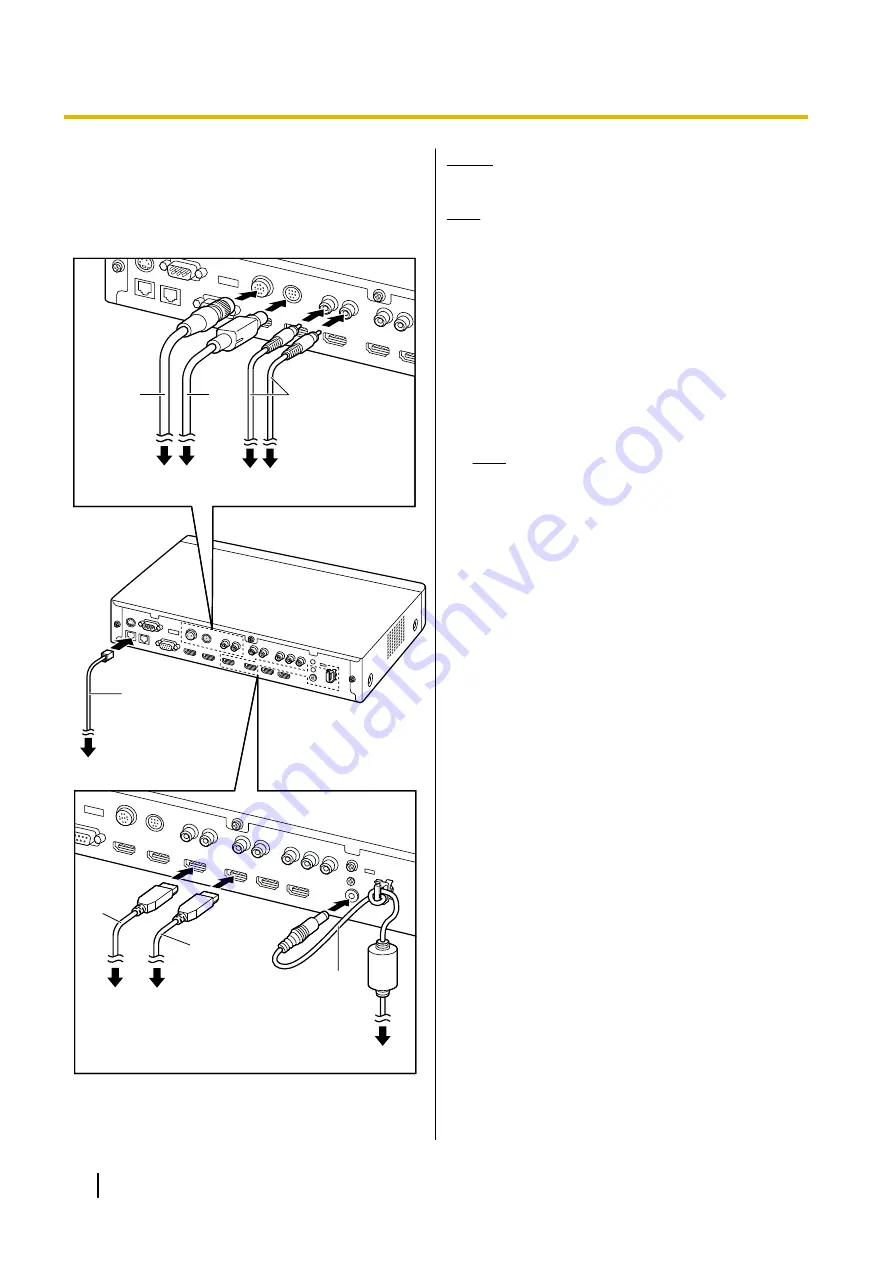
Connecting the Unit
This section describes how to connect the main video
camera, display, microphone, LAN cable, AC adaptor
and power cord.
E
D
C
A
B
G
To each
device
To each
device
To a display
To an AC outlet
To a general - purpose
microphone
F
To a router
Notice
•
Use only the included power cord.
Note
•
Make sure to read the instruction manuals for
all devices being connected.
1.
Connect the main video camera.
•
Connect the main video camera to the Main
Camera terminal on the back of the unit using
an HDMI cable (
A
).
2.
Connect the display.
•
Connect the display to the HDMI 1-3 terminals
on the back of the unit using an HDMI cable
(
B
).
Note
•
The HDMI3 terminal on the back of the unit
switches between output of your own image
and recorded images. When recording,
connect the recording device to the HDMI3
terminal, and set the output to that for
recording (Page 151).
•
If your display is not compatible with HDMI,
use a component cable. Since sound
signals are not transmitted when using a
component cable, connect an amplifier/
active speaker, or use the display’s
speakers.
•
If "game mode" can be selected in the
display’s settings, set "game mode". It may
improve voice delay.
3.
Connect a microphone.
Digital Boundary Microphone (optional)
Connect the Digital Boundary Microphone to the
MIC (Digital) jack on the back of the unit using the
proprietary cable (
C
).
•
Use only the included cable.
•
Push and turn the connector of the proprietary
cable until it clicks. If the connector does not
click, try reconnecting the cable with the top and
bottom of the connector reversed.
Analogue Boundary Microphone (optional)
Connect the Analogue Boundary Microphone to the
MIC (Analog) jack on the back of the unit using the
proprietary cable (
D
).
•
Use only the included cable.
•
Ensure that the arrow on the connector of the
proprietary cable is facing up when you insert
30
User Manual
Document Version 2018-01
Preparation
















































